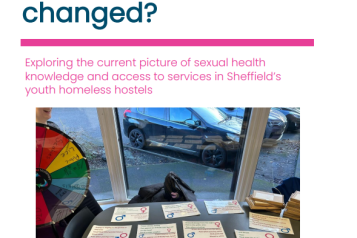How do young adults look after their mental wellbeing?

JCI Sheffield is a voluntary organisation that provides development opportunities for young people (in their 20s and 30s) to create positive change. Over the past year they've been focusing on how to help their communities rebuild after the disruption of Covid-19, including looking after their mental health.
They used our #SpeakUp grant funding to talk to their members about their own experiences, and the formal and informal support they access.
Different approaches work for different people

The people we spoke to talked about their own experiences of mental health and wellbeing. They thought about what helped them manage their mental wellbeing on a day-to-day basis, as well as when they are experiencing mental health difficulties.
The strongest message to come out of these experiences is that different approaches work for different people:
- When it comes to formal mental health support, some people prefer talking therapies while others prefer medication
- For informal support/self-management techniques, what works for each individual can be very varied, for instance peer support or creative hobbies
- What works for an individual can change over time, and people may need to adjust their approaches to self-management and formal support regularly
People need choice and control over their support options
Because people were so clear that approaches to mental wellbeing cannot be one-size-fits-all, it's really important that individuals have choice and control over their support options, as well as the opportunity to explore different approaches to see what works for them.
Having access to flexible mental health support would help young adults to manage their own mental health, and reach out to the right service at the right time if they need further help.
Find out more
To read about people's experiences in more detail, read the full report:


